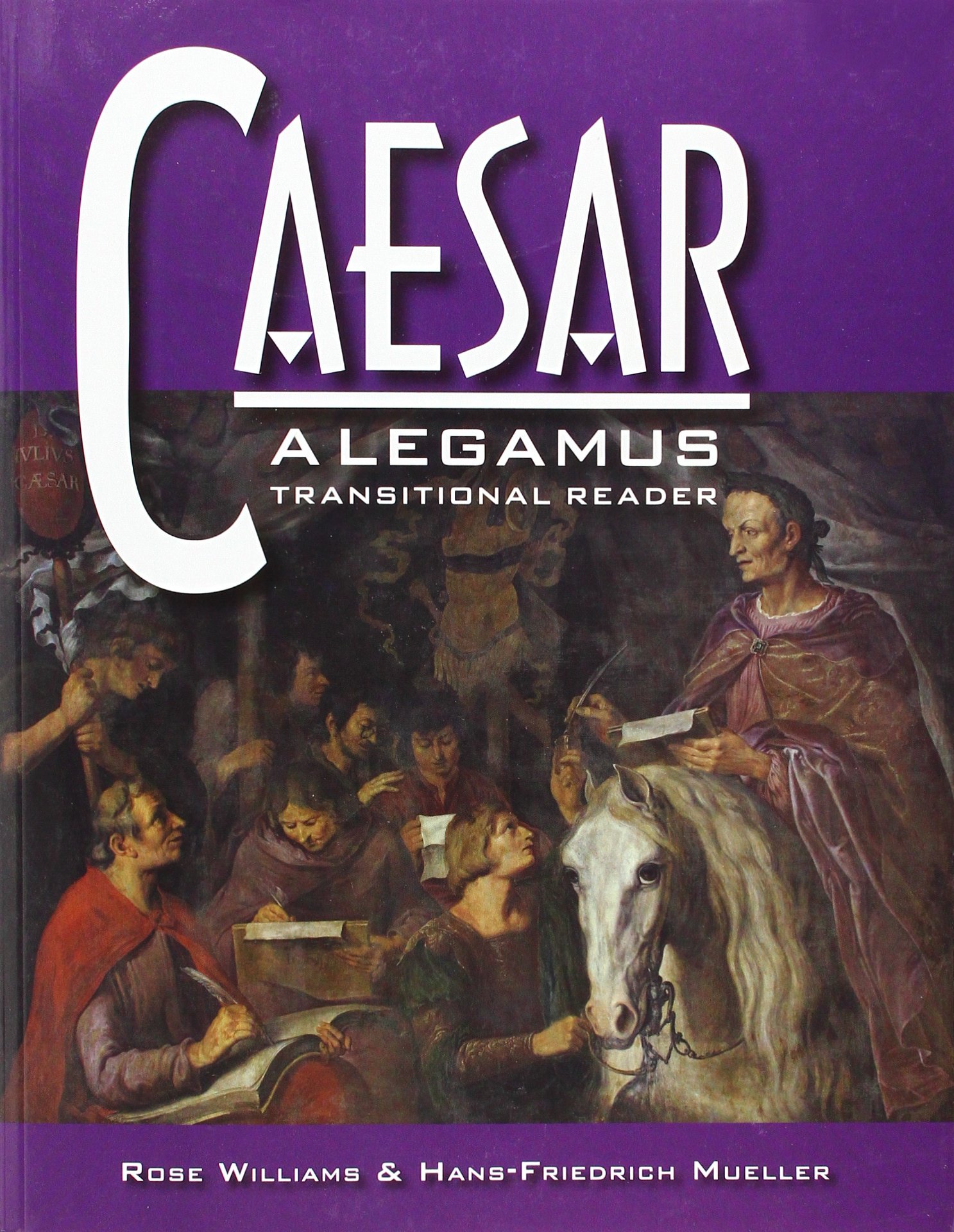



Full description not available
F**L
Some Flee the Schoolroom, Others Read A Legams
This book, which is one of a series, addresses the issue that reading textbooks--"Some are dying on the plains, whiles others are fighting in the ships"--prepares a Latin student remarkably badly for reading real Roman authors. There are many reasons. Like English writers now, Roman authors did not all write alike. Latin also varies by era. Caesar wrote (for the most part) military reports, Cicero wrote legal briefs (often impassioned), Horace wrote lyric verse. Dliferent vocabularies, different favourite constructions, different effects. Latin teachers know, and too many students find out, that the ecounter with real authors (often much awaited) is the time when students by the thousand head for the exits.The A Legamus series takles this very well indeed by using, of course, the original texts, but with side material preparing the student for the author's querks, guiding him as to context, giving a complete vocabulary, unlocking idiomatic phrases (military terms, political usage, special usages of law courts). What is especially helpful is the "pass through" notion: in complex writers such as Cicero, much less Caesar, the bare bones of a sentence are given first, then the compound phrases, then the flourishes are dropped in. This help is copious in the early part of each book, and lessens gradually, by the end of each book (one to an author) the student, with a few helpful nudges, is virtually reading the text from scratch. The idea is brilliant, the scholarship is first rate, the help is immense. (It is perhaps better to skip the "Thinking about what You Read" sections: schoolmasters writing for oddly dim teenagers--"Do you have discussions llke this with your girlfriend/boyfriend," after Horace, for God's sake.) It makes meeting real Roman writing a pleasure and adventure instead of bafflement and misery.I have one critcism, whcih may be unresolvable (and it does not concern this volume, of Caesar, who writes in prose, but of the volumes dedicated to the poets). Sentences in Latin poetry are often, as well as gramatically challenging, and a maze as to word order, also surprisingly long. A Legamus will often break a sentence between two pages. This is misery. Not only are you dealing with your own private hundred-car train wreck, but you cannot even see the whole train. I wish they would fix this, maybe with more pages.But, in all other ways, a wonderful series which may change your whole life among Roman authors.
P**N
It has a good grammar review sections throughout the book
I am using this book as a Pre-AP text. It breaks down what Caesar is saying before the students read the original. It has a good grammar review sections throughout the book.
A**3
Not sure how this has such good reviews. It is a mess
Not sure how this has such good reviews. It is a mess: terrible design, inconsistent from lesson to lesson, grammar notes to brief to be helpful. It needs to be severely edited. The section vocabulary, fir example, should all be on one page not spread throughout the lesson. The grammatically appendix is also seriously flawed. Why seperate indicative irregulars from the subjunctives? Why not put all all the forms in one place? I'd rather just have a text with notes than try to follow lessons that seem shoehorned into the text. They rarely apply. Please avoid.
G**F
Excellent gap filler between basic grammar and its application to ...
Excellent gap filler between basic grammar and its application to the real classics. Very suitable for private study. Don't know of such textbooks in Dutch.
R**D
Five Stars
All good
Trustpilot
1 day ago
2 months ago